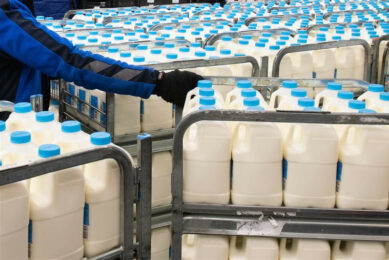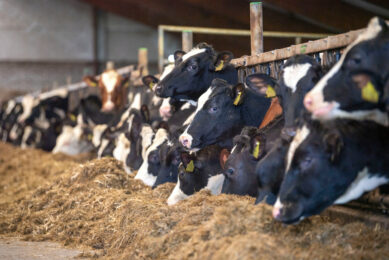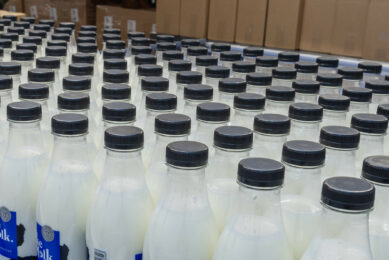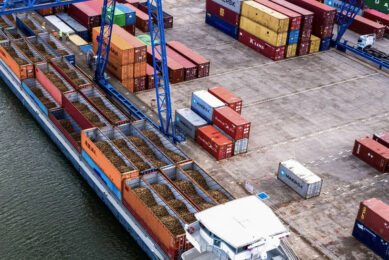Global dairy prices rebound, sustained recovery uncertain

Global dairy prices rebounded in the most recent Global Dairy Trade auction, but it remains to be seen whether this is the beginning of a sustained recovery.
Prices at the Global Dairy Trade (GDT) on 18 April showed a 3.2% gain, to an average price of US$3362 per mt. The results show the first gain after 4 consecutive declines. The international milk prices rose while volumes fell. A total of 22,713 tonnes of dairy products were sold, down about 4.7% from the previous sale.
Earlier, dairy co-operative Fonterra reduced its 2022-2023 season forecast farmgate milk price. This lowers the midpoint of the forecast range by 20 NZ cents (US 12.3 cents) from NZ$8.50 (US$5.69) to NZ$8.30 (US$5.55) per kg milk solids.
Demand from China
“Demand from China for whole milk powder has not yet returned to expected levels,” Fonterra CEO, Miles Hurrell, said. “Northern hemisphere milk production, and therefore skim milk powder stocks, are increasing as they head into their spring flush. With these factors weighing on demand, prices have not increased to the levels required to sustain a higher forecast farmgate milk price for this season.”
After Fonterra’s announcement, the price of skim milk powder rose on the GDT auction by 7%, and the price of whole milk powder increased by 1%. At this point it is too early to conclude whether this is the start of a lasting recovery. Hurrell remains positive about the outlook for next season. Fonterra will share its opening 2023-2024 farmgate milk price forecast in May.
With local milk production contracting, Australian dairy’s commodity prices are strong compared with other exporting countries. Australian milk output fell 5.3% year-on-year in February, according to Dairy Australia. Season-to-date production is now tracking 6.5% behind the prior year comparative.
Australian supermarket giant Coles has announced that it will acquire 2 automated milk processing facilities from Saputo Dairy Australia for approximately AUS$105 million (US$70.3 million). Each facility has the capacity to process around 225 million litres a year. Currently, they are predominantly used today to process Coles’ own brand 2L and 3L milk.
Improving milk supply
The processing facilities are located in Laverton North (Victoria) and Erskine Park (New South Wales), close to Coles’ distribution centres. Coles CEO, Steven Cain, emphasises that these facilities will improve milk supply and supply chain resilience in the dairy sector for the supermarket giant. Coles will also have sufficient capacity to facilitate further growth opportunities through new product innovation.
In 2019, Coles launched a direct sourcing model for milk supply. Around 90 dairy farmers supply milk directly to Coles. Coles is understood to have offered long-term (3-5 year) contracts with milk prices between AUD$12 (US$8.03) and AUS$12.50 (US$8.37) per kg milk solids.
According to a recent report of insightSLICE, the global organic dairy market size was estimated to be US$27.39 billion in 2022, and is expected to reach US$74.34 billion by 2032 at compound annual growth rate of 10.5%.
Dairy trends
The report says that growth-driving factors of the global organic dairy market are consumer demand for healthier and sustainable food options, a growing awareness of the benefits of organic dairy, expansion of organic dairy farming, and support from governments and certifying organisations. The milk segment is the largest in the organic dairy market.
Europe is the largest market for organic dairy products. Many European consumers are willing to pay a premium for food that is produced in a sustainable and environmentally-friendly manner. Many consumers are looking for alternatives to traditional dairy products. Another trend is the increasing focus on locally-sourced food, as many consumers are interested in supporting their local farmers and reducing their carbon footprint.
Join 13,000+ subscribers
Subscribe to our newsletter to stay updated about all the need-to-know content in the dairy sector, two times a week.










